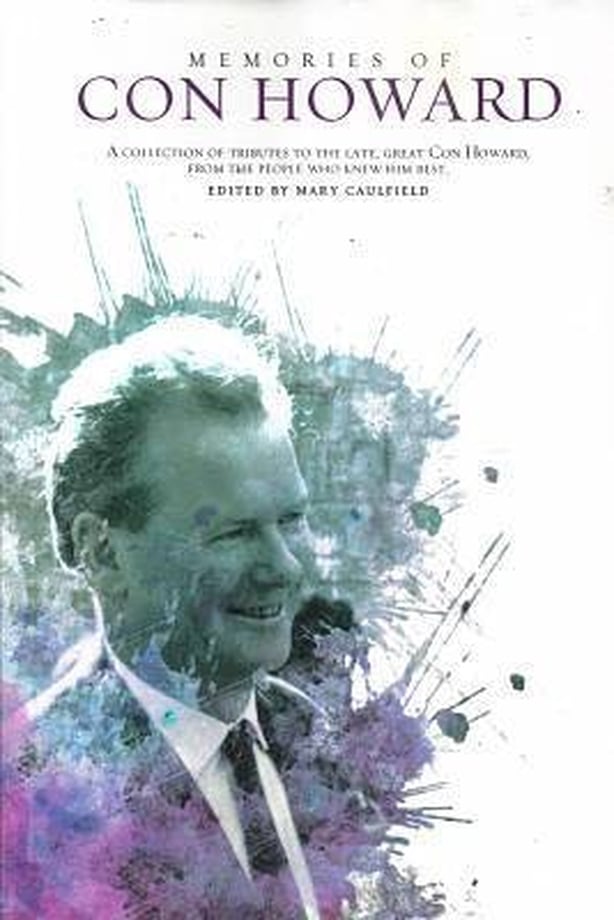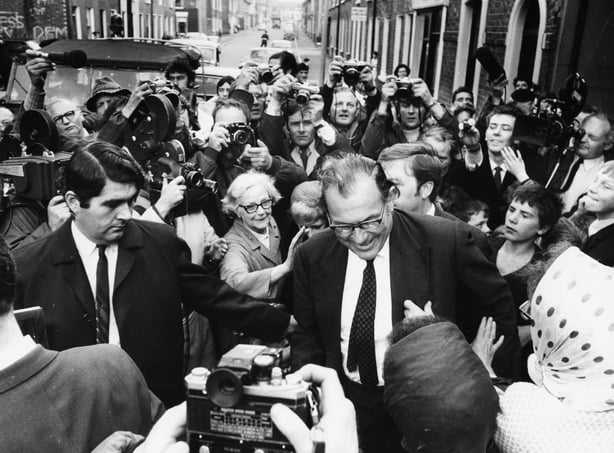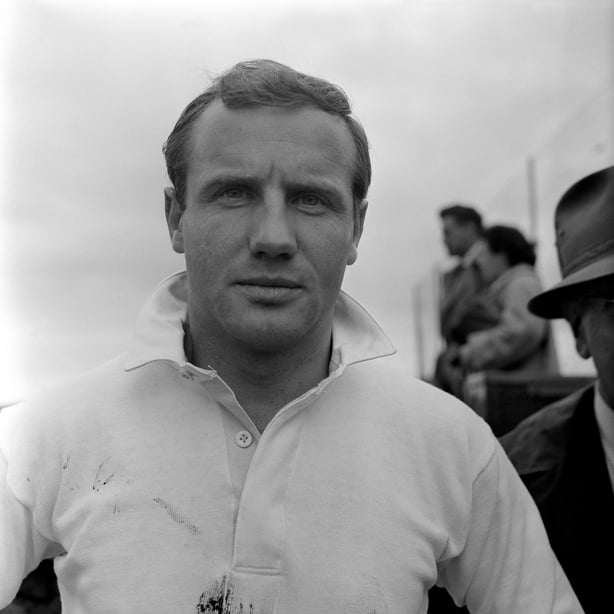Analysis: The unconventional diplomat used London parties and soirees to befriend and influence politicians, media moguls and journalists
From lunches, dinners and tea parties to drinks in clubs and bars, formal and informal socialising was, and still is, an important part of a diplomat’s brief. It was an activity which grew in significance for Irish representatives in London after the outbreak of the Troubles, and some of these encounters are published in the latest, fourteenth volume of the RIA’s Documents on Irish Foreign Policy (DIFP) series, covering 1969 to 1973.
Ireland’s Ambassador in London from 1970 to 1977 was Donal O’Sullivan. Serving with him as First Secretary and Information Officer from 1969 to 1972 was a somewhat unconventional diplomat, Con Howard. The Clareman is credited with cultivating a nascent Irish-American social network during his time posted to Boston in the early 1960s, and of being among the first to encourage US businessmen to invest in Ireland.
In London, Howard was tasked with building up a rapport with influential media moguls and journalists, in order to relay the Dublin Government's take on the developing situation in Northern Ireland to the British public. Parties and soirees were his habitat of choice for planting the seeds of cooperation, the fruits of which are still growing today.

Howard got a sense of the difficulties that lay ahead not long after he arrived in London in July 1969, when Stanley Orme MP telephoned inviting him to have a social drink with friends at the Irish Club. Included in the gathering at the club were a number of people who were in involved in the civil rights movement who told Howard they were ‘very struck by the fact that in the past week they have been able to get nothing through the British press – they attribute this to the cocktail parties and lunches given by the Ulster Office.’ Howard, it seemed, had his work cut out for him, but at the end of his tenure in London, the Ulster Office would be happy to bid him farewell.
Throughout 1970, it was difficult for the Irish Government line to find expression in the UK papers. In June Florrie O’Riordan, then posted at Foreign Affairs’ HQ Iveagh House in Dublin, sent a vicious critique to Howard of a Max Hastings’ article on Northern Ireland that had appeared in the Evening Standard:
As we know the most important reforms – housing and local government – have not been given any concrete expression... But Mr. Hastings goes on "with most of the basic rights the Catholics sought having been passed into law"… This line is being increasingly used by unionist propaganda – a good deal of it appears to have been swallowed (unconsciously no doubt) by Hastings… But it would be a great pity if the notion is to be propagated that civil rights have been granted. They have not.
Howard had to cultivate contacts in the British press and urgently. The following month he reported back to O’Riordan: ‘While I was in the famous Ye Olde Falstaff Hotel yesterday, C.J. [Cyril] Lear, Editor of the News of the World beckoned to me and we retreated to a quiet corner and bought ourselves and the three barmaids drinks and goodies and had a long and useful conversation’. Presumably the conversation was out of ear shot of the three unsuspecting barmaids.
Lear proceeded to flatter the Irish Government and, by extension, Howard, when he told him what a tremendous public relations job the Taoiseach’s ‘quiet man’ approach was doing for Ireland in Britain and throughout the world. Howard returned the compliments, and in reporting back to Dublin demonstrated the level of contacts he had begun to build up:
I also said to him how much I appreciated the firm line the News of the World editorials had taken of the situation in the North and the demands that a Civil Rights programme should be executed quickly and fully... He told me that they would keep it up… After some time I gathered from him that the strong editorial line on the Northern situation was very much personally backed and perhaps initiated by Mr. Murdoch. the owner of the News of the World and of The Sun. I did indeed some months back intimate to you and the Department that this was my view of the situation. I told Mr. Lear that I would very much like to meet Mr. Murdoch.
Diplomatic socialising was not confined to bars and clubs, and Howard duly attended the Conservative Party conference in Blackpool in October 1970. He reported on a chat he had at an ITN evening reception with Conservative MP, and then Home Secretary, Reginald Maudling, who had more compliments for Jack Lynch. Maudling made a very special point of saying how ‘the Taoiseach’s statesmanlike behaviour and that of his government was a major contribution in itself to the building of a better society in Northern Ireland. He was warm and enthusiastic about this. Indeed, in general [Maudling] showed himself to be very friendly and well disposed’.
Howard included in his report an incongruous observation that was shared with the conference in an address by retired Conservative politician, then a chief party fundraiser, Edwin Leather who ‘informed them that Government was like sex, when it is good it is fantastic and when it is bad, it is still pretty good.’

Later that month over lunch at the Irish Embassy, Donal O’Sullivan and James Callaghan (Home Secretary in the preceding Labour Government) talked for the best part of three hours. The conversation ranged over a wide field, and most of it was naturally devoted to the North. There emerged a recurrent theme at this time in informal conversations with British civil servants and politicians, a counter point to the flattery being lavished on Taoiseach Jack Lynch – it was Prime Minister Heath’s evident coldness.
Callaghan told O’Sullivan that the Irish ‘would find Mr. Heath cold and difficult to know.’ Indeed, O’Sullivan would discover this in person at his very first meeting with the Prime Minister:
I called yesterday afternoon on Mr. Heath at his office in the House of Commons. He received me with the greatest coldness and showed no trace of a friendly attitude throughout our conversation which lasted half an hour. When I entered his office he scarcely raised his head from his papers and gave me a cold shake-hands without even standing up.
In the middle of the Cold War at a reception for Andrei Gromyko in London, Heath’s coldness and unease with people was expressed again to O’Sullivan, this time by Permanent Under-Secretary of State for Foreign Affairs and Head of the British Diplomatic Service, Denis Greenhill:
I ran into Sir Denis Greenhill at the reception for Mr. Gromyko at Lancaster House on Wednesday night. Sir Denis referred to the Taoiseach’s meeting in New York with Mr. Heath. He told me that, after the meeting, the Prime Minister in looking back on the talk felt it might have been better to have continued the discussion for a while longer. Sir Denis said there is a natural coldness about the Prime Minister and it takes him a considerable time to warm to people.
Meanwhile, Howard continued to keep tabs on relevant friendships and networks in London. He organised a luncheon in March 1971 for the incumbent Irish desk officer in the Foreign Office, Robert Taylor who, worryingly, was ‘very friendly with the Press Officer in the Ulster Office’ in London. The planned charm offensive included a two-hour chat with Andy Mulligan.

The Irish rugby international and British and Irish Lions captain had retired from rugby, moved to France and began a career in journalism that saw him move from sports writing to news reporting. At this time he had also found a natural home working on television for ITN News and Panorama. Howard was particularly pleased to have him on side; ‘Andy, being a Northern Protestant, was, of course, convincing and as always enormously helpful’, but he concluded with a note of caution:
It will not, of course, be possible to put up this kind of marathon performance for everyone, but we will keep trying. The exercise does reflect the kind of rapport which we have been trying to build up with the influential news media here which is still far from being fully developed.
Howard’s ‘dining for Ireland’ could have been his undoing, rumours abated of a fallout with O’Sullivan over the Embassy’s networking methods and Iveagh House perhaps perceived it too as a veil for heavy drinking, speculation abounds as to why he wasn’t promoted from First Secretary until near his retirement in the 1980s.
Nonetheless in 1994 journalist Wesley Boyd told the Irish Times that Howard’s influence on editors, leader writers and political correspondents in Fleet Street was so effective that the Stormont government sent one of the North's best journalists, Tommie Roberts, political correspondent of the Belfast Telegraph, to the Ulster office in London as press officer to counter Howard's work.
Dr Kate O'Malley is Assistant Editor with the Royal Irish Academy’s Documents on Irish Foreign Policy research programme, and is one of the editors of Documents on Irish Foreign Policy Vol. XIV: 1969-1973.
Documents on Irish Foreign Policy is a partnership between the Royal Irish Academy, the National Archives of Ireland and the Department of Foreign Affairs
Follow RTÉ Brainstorm on WhatsApp and Instagram for more stories and updates
The views expressed here are those of the author and do not represent or reflect the views of RTÉ

